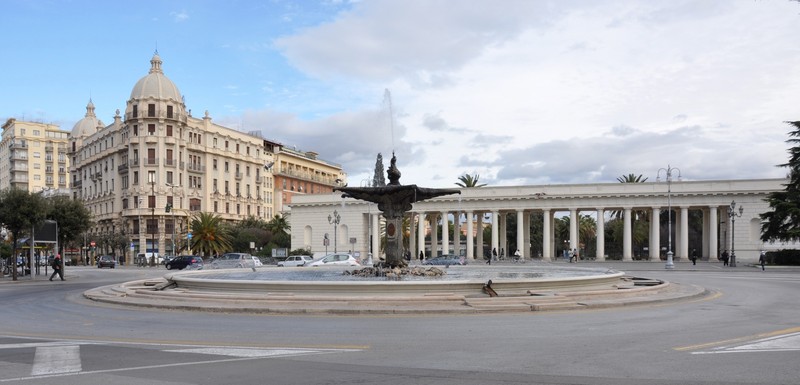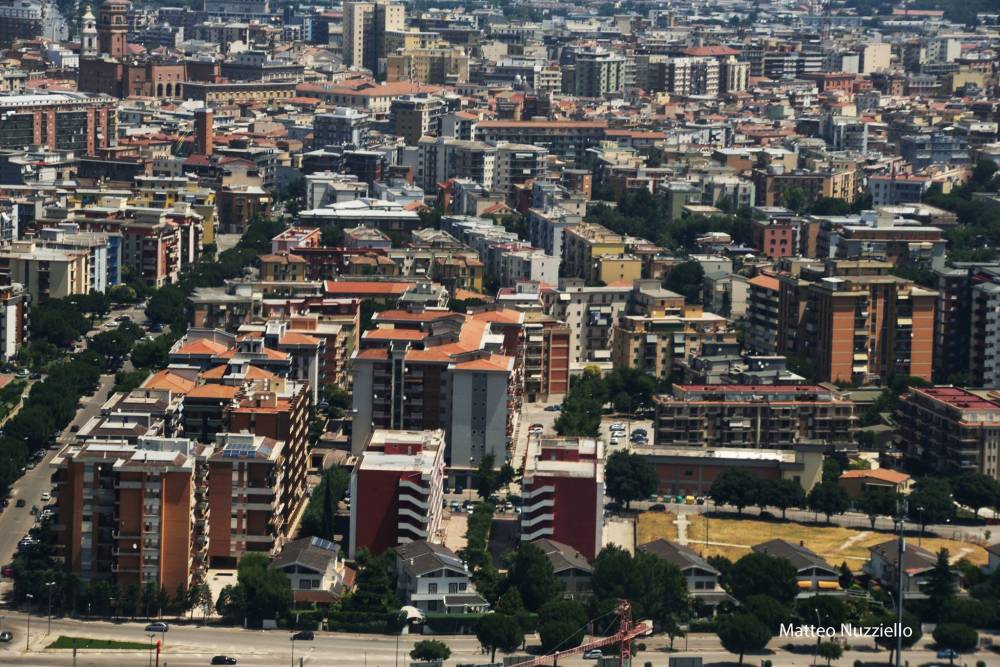



Foggia is an Italian town that is the capital of the province of the same name, in Puglia.
It is the third municipality in the region by population, second by extension and the eighth in Italy by area.

«Oval square that never ends, of a strange power. It is all strewn with humps, upset, dry, blinding with dust ... no place would have more right to be declared a national monument "
(Giuseppe Ungaretti, description of the Piano delle Fosse)
Church of the Addolorata in the heart of the ancient village - Example of Apulian Baroque According to the most widespread opinion, the name Foggia derives from the Latin fovea, meaning "pit" [no source]. But "pit" is not to be referred, as is generally done, only to grain pits, even if these structures are already attested in the Angevin period in Foggia, the center of the Tavoliere, whose typical activity is the cultivation of wheat.

Fovea, on the other hand, can also mean "a pit" intended as a "catchment area", probably the one attested in the legend of the Iconavetere and recalled by the city coat of arms. Furthermore, linked to the legend of the unveiling of the icon of the Nicopeian Madonna (connected to a mythical form widespread in the Adriatic and Greek areas and which finds comparisons in the birth of Venus from the waters), and in particular to the flames floating on the water, is the The hypothesis, however unlikely, according to which the name of the city derives from fire and, consequently, from the title of the sanctuary of the Incoronata, Sancta Maria de Focis, which however means "Santa Maria della Foce", and not "dei Fuochi".
Foggia
Address: Piazza XX Settembre, 20, 71100
Phone: 0881 791111
Site:
http://www.comune.foggia.it/Location inserted by
BBCC